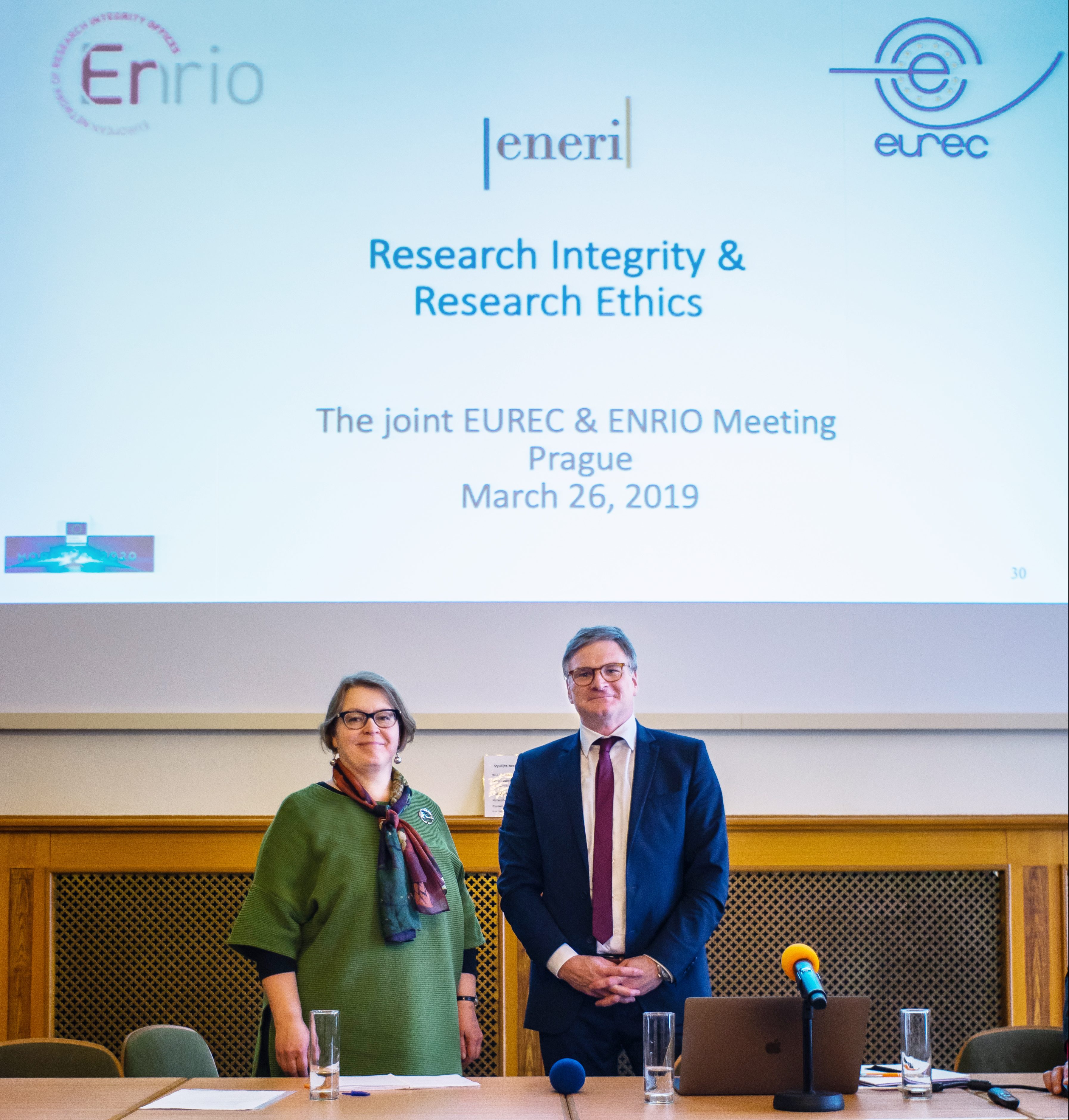Meeting of the REC/RIO Policy Group
The European representatives of RECs (EUREC) and RIOs (ENRIO) as part of ENERI met in Prague (March 26, 2019) to form a REC/RIO policy group. The group decided to improve the exchange of perspectives and experiences and to enhance their cooperation.

The European Civil Society is faced with dynamic and rapid developments in science and technology. Many of these developments improve the quality of life of citizens in industrialised societies in an extraordinary way. At the same time negative side effects of science and technology are visible. In particular, new scientific discoveries and emerging technologies in biology, biotechnology and medicine have raised new ethical issues, e.g. in conjunction with artificial intelligence, brain research or germline modifications. But also the process of research itself is associated with risks – in particular, when human beings are involved as research subjects – and generates fears in society. At the same time several cases of research misconduct such as data fabrication or falsification damage the reliability on and confidence in research. Even more damaging to the quality and reproducibility of research are questionable research practices and sloppy science – especially because these occur more often.
Modern societies make efforts to deal with these implications of science and research: Technology Assessment analyses the factual risks; Ethics Councils advice policy makers and stimulate public debate; Research Ethics Committees (RECs) and Research Integrity Offices (RIOs) are directly involved in the proceedings of research to monitor the norms and values within science. However, apart from the guidance of the European Code of Conducts or European laws to conduct research in biomedicine, there exist no harmonised standard procedures which are nationally or internationally accepted. Even the existing European regulations and guidelines are interpreted and implemented in various ways in the EU Member States.
Nevertheless, the responsibility to follow the line of good scientific practice lies with the individual researchers and the research institutions. Therefore, the habits and attitudes of individual researchers need to be embedded in a robust ethical environment of the research institutions. An important part of this ethical environment is the work of RECs and RIOs. Although RECs and RIOs conduct their daily work at different places during the research process they consider similar aspects and principles of research ethics (RE) and research integrity (RI), and in particular they are highly relevant institutions of the academia that support good scientific practice jointly.
During a European Network of Research Ethics and Research Integrity (ENERI) stakeholder workshop in 2017 the participating stakeholders coming from academia, scientific journals, policy makers, funding organisations claimed that for strengthening this joint support a more developed exchange between RECs and RIOs in the European Research Area is desirable. A collaborative approach initiated by ENERI with input from European members of RECs and RIOs shall be continued. The exchange among RECs and RIOs could help to harmonise procedures regarding research ethics and research integrity, without ignoring cultural differences.
by Dirk Lanzerath (ENERI Coordinator)
